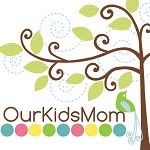"No273 13 Oct 2009 Sneeze", user mcfarlandmo, Flickr, Creative Commons Attribution
Flu season is in full swing and boy, is it a doozie this year! I can't tell you how many people I know who have had the flu recently. I have to be honest, too. As much as I promote natural cleaners, I have had to fight the urge to grab some...uh...word that rhymes with Schmorox...disinfecting wipes or spray. I can't stand the thought of anyone in my little family having the flu. We dealt with Bean being hospitalized with H1N1 in August 2009 after a trip to Disney World and it shook me to my core. I'd venture to say there's nothing more scary than watching your child lie on a hospital bed, barely breathing. She's been sick - very sick - before. But, I will admit that I cried the first night we were there because I honestly did not know if she would survive that illness. It was horrible. I was 7 weeks pregnant and also dealt with the fear of what the preventative medication I was taking was going to do to my unborn child, since I had to take it. Anyway, I will also freely admit that I went home and used nasty, non-natural disinfecting wipes on everything as soon as we left the hospital. I wish I had known then what I know now. But, as parents, there's a point where you don't care if what you're using is natural...if it's a life and death situation, give me the blue and white bottle of chlorine bleach, right?! Wrong.
I'm not going to make a huge post on the harmful side effects of bleach; a small amount of research will yield scores of information for you. In short, chlorine bleach releases dioxin, furans and other organochlorines into the air. It can cause sore throats, coughs, wheezing, shortness of breath, fluid in the lungs, and studies have shown a relationship between dioxin exposure and cancer, birth defects, and developmental/reproductive disorders. Not to mention, 25,000 children a year in the United States experience an accident involving bleach, such as ingestion, and it is the most common household chemical involved in poisonings. Chlorine (also known as sodium hypochlorite or hypochlorite) is found in many household cleaners and products, such as: automatic dishwashing detergents, chlorine bleach, chlorinated disinfectant cleaners, mildew removers, toilet bowl cleaners, and bleached paper products. The EPA says that using bleached coffee filters alone can result in a lifetime exposure to dioxin that “exceeds acceptable levels”. Choose instead unbleached coffee filters, facial tissue, toilet paper, etc. Dishwashers are the worst culprits, releasing chemicals in a steamy mist when the door is opened after washing. In a clothes washer, chlorine mixes with the dirt in clothes to generate airborne, toxic chlorinated organic chemicals. Chlorine-free dishwashing detergents are readily available (In fact, I'll be doing a review and giveaway of a few great chlorine-free automatic dishwashing detergents in the next few weeks!).
Ok, off that soapbox. I've found some great, safe, natural alternatives to uses for bleach. If you have a bleach use and can't find the natural alternative here, let me know. I love a challenge!
- Disinfecting Germs: Keep white vinegar in a spray bottle & 3% hydrogen peroxide in another. (The bottle containing the hydrogen peroxide should be opaque, as it will degrade in a clear bottle). Spray contaminated surfaces with the vinegar then follow with peroxide. This combination has been shown to be as effective as chlorine bleach, killing 99% of bacteria.
- Cotton Stain Removal/Whitening: The SUN! Yes, it's true. The sun is God's own alternative to bleach in the washing machine. Wash as usual (throw in a little vinegar with the wash to help remove residues), then dry in the sun. I once took some very stained cloth diapers of Bug's, hung them out to dry in the sun, and in 20 minutes, they were 100% stain free. No kidding. Cross my heart. Try it...it works!
- Spot Treating Stains: Lemon juice an option for non-protein stains. Blood (or any other protein stain) should be removed by flooding with cold water. Grass stains can be removed with alcohol, with eucalyptus oil being another alternative. And a good soak in soapy water should remove most other stains. And this doesn't just apply to whites, either.
- Removing Mold & Mildew: Vinegar
- Disinfecting Toilets: Frequent "swishing and swiping" (see this post for more on that) will keep staining at bay. For disinfecting purposes, straight vinegar or vinegar with a few drops of tea tree oil works, too. Bac-Out is also a great alternative.
- Disinfecting Bottles, Toys, etc.: Soak a cloth in vinegar and lemon juice, then wipe down other toys. Make up a spray bottle of vinegar, few drops of tea tree oil and few drops of lavendar essential oil - this makes an antibacterial, antimicrobial, and anti-fungal spray. Put bottles, pacifiers, nipples, etc. in a pot of boiling water for 20 minutes. For stuffed animals, put them in a pillowcase and wash them on cold with your (non-chlorine) detergent and vinegar, then air dry or tumble dry without heat.
Ok, that's all I can think of that I might use bleach for, haha! Of course, there are also store bought natural alternatives to bleach as well. For other recipes (such as mold removers, etc) check out this post. Stay healthy!





Hi, Amber! I've been making my own laundry detergent for awhile now for a couple of reasons and have found vinegar to be more effective than bleach anyway when it comes to whitening power. I use a little vinegar in every load. You would think everything would come out smelling like vinegar, but just the opposite is true. Everything comes out smelling fresh and clean!
ReplyDelete